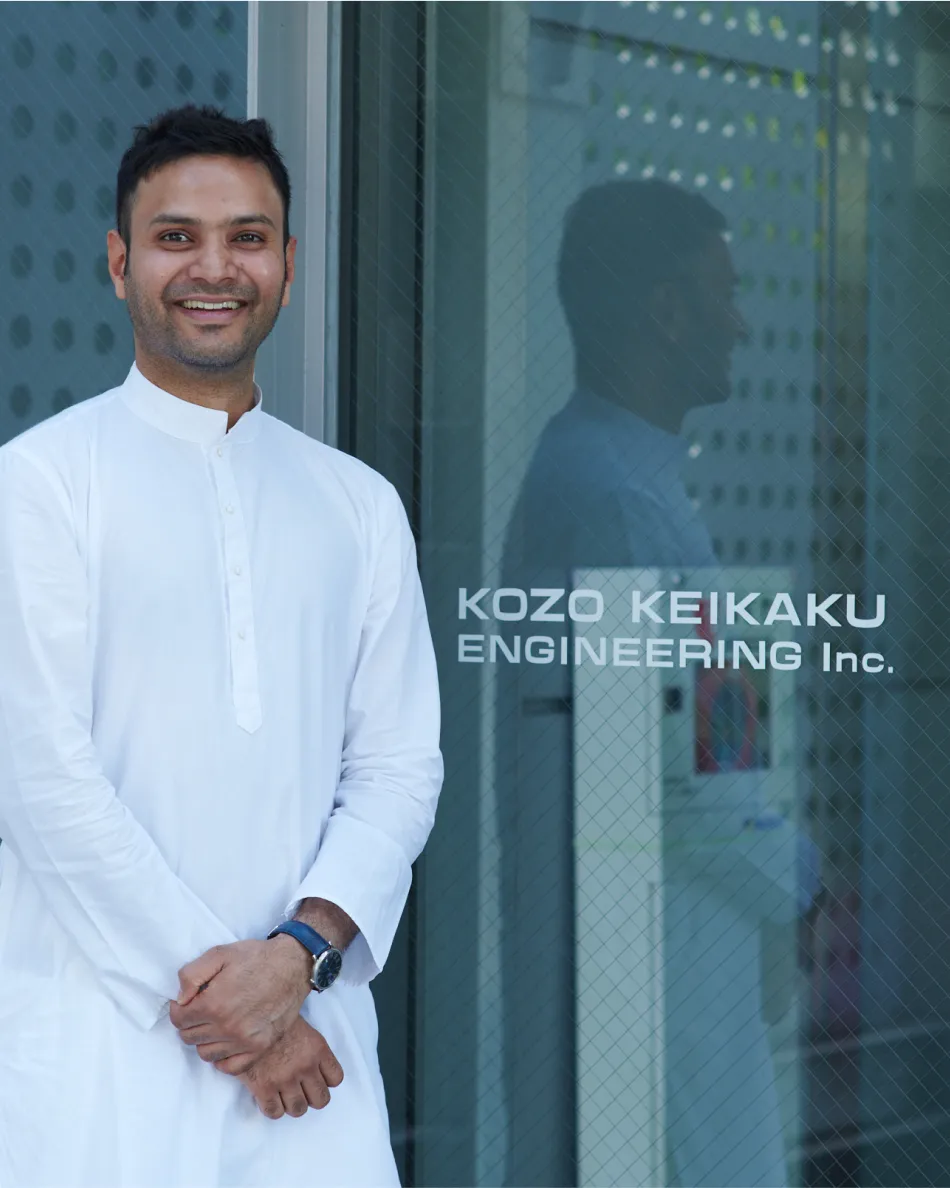My fascination for Japanese manufacturing technology
I am from a city called Aligarh in northern India. At university, I majored in mechanical engineering, and studied car engines and manufacturing processes. I also took part in competitions for ATVs (all-terrain vehicles), building the vehicles myself and even driving them as a driver. After graduating, I went on to do a postgraduate course in Singapore.
I have always had a fascination for Japan, as a major manufacturing and technological powerhouse. That's why I decided to take part in the ASEAN Career Fair, a job fair held in Singapore.
There were many Japanese manufacturing companies taking part, but I liked KKE the most. At this time, I couldn't speak Japanese yet, but one of KKE's staff told me “It's okay. You can learn Japanese after you join the company.” I also heard that, in addition to the fields of business and the way work is carried out, each member is evaluated equally, and that foreigners can also work comfortably at this company; this is why I chose to work here.
Even after I actually joined the company, my seniors and the department manager at KKE gave me a lot of advice and support, despite the fact that I knew nothing about Japanese language or culture. For example, in Japan it is common practice to wear a suit and tie when meeting with clients, or to sit in a certain place, but in other countries there are no such rules. I was taught about these customs and manners in detail. For Japanese-language training, the company provided me with a Japanese teacher, and for three hours a day from 9 AM to 12 PM on weekdays, I studied and mastered everything from reading and writing kanji to the use of keigo (honorific language) in one year.
Transform Japanese manufacturing sector, with the support of a non-destructive testing device
Since I joined the company, I have been working on promoting the introduction of a German-made magnetic, non-destructive testing device called “3MA” to Japanese companies. The most common method of verifying the quality of industrial products is called destructive testing, which consists of taking samples and destroying them. However, this method has the problem of being expensive in terms of both materials and time. This device can detect the structure, hardness and strength of iron products that react to magnetism, and can do so in just a few seconds without destroying the product, giving accurate results. It is a very new technology, and I believe it will bring about a significant change in the quality verification methods of Japanese manufacturing in the future.
During the first two years, I read papers and books about 3MA to understand how the technology works. Now I am working on technology development and marketing activities at the same time. Three times a year, we exhibit 3MA at manufacturing company conferences, give presentations and hold business talks with steel manufacturers and automobile manufacturers. In the future, I would like to expand the use of 3MA in new industries such as electricity and wind power. I think this will be important for maximizing the value of 3MA.
Outside of work, I love to keep active. I play baseball, ski and surf with my colleagues through the company's club activities. There is also a billiards table in the basement of the company, and I have even participated in company billiards tournaments and won as part of a team.
Challenge yourself in this company that values multiculturalism and diversity
I think that the people who fit in well at KKE are individuals who enjoy new challenges and are willing to take on unprecedented opportunities. What is important is not whether you succeed or fail, but to experience the process of taking on a challenge.
I am Muslim, and at KKE, there is halal food provided at events such as the year-end party, and there is also a room where I can pray on a daily basis. In this way, I truly feel that our company values and respects multiculturalism and diversity.

